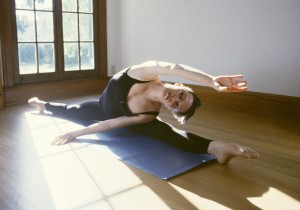 A friend once said to me; don’t get attached to your house or the things in it. Then you won’t miss it when you lose it.
A friend once said to me; don’t get attached to your house or the things in it. Then you won’t miss it when you lose it.
Yet my home gives me pleasure. I designed and built it to meet my needs for smaller space with lots of light, openness and freedom of movement. I will miss it when I can no longer live here just as I miss the home my husband and I had built and which I had to sell. But I would miss even more the opportunity to have enjoyed it.
Likewise, I would miss the things in my home that give me pleasure, create beauty in spacing, design and color as well as being functional. I would find it difficult living in Spartan quarters without the things I have inherited, were given to me or collected that I love and that hold meaning to me.
But my friend was right in that you can become so attached to your home and things that you lose perspective. They aren’t the end all.
We can collect so much “stuff” that it becomes a great source of stress. When closet doors don’t close, our cars won’t fit in the garage, there is no room in the spare bedroom for guests, and we have to rent outside storage units just to store “stuff”, it’s time to get serious about why we are hanging onto so much of it.
So what do you do?
The prospect of sorting, organizing and getting rid of stuff can be so overwhelming we walk away and treat ourselves to a shopping trip! Wrong move. Moving to a new residence is a great time to get rid of stuff. Downsizing your home is another. But you can get rid of stuff without being so drastic.
Where do you start?
Organizational experts will tell you if you haven’t used something in two years, get rid of it. I have used drastic measures before but have given away things I wish I still had. Since I don’t like clutter, and my home space is designed and designated for just so much, it gives me incentive to not just organize but get rid of things. Here is what works for me.
1. Start in one area at a time. Perhaps that is an overflowing closet, or a room. Keep the target area manageable. Don’t try to do the whole house at one time.
2. Sort and evaluate carefully what you have: What is absolutely necessary, what may be necessary at some time in the future (are you sure it really will be necessary?) and what is meaningful enough to organize space for it.
3. Examine the space available to you. Resist the temptation to simply move excess “stuff” into another area. Challenge yourself. Is this stuff really necessary? Will you really need it in the future or is it an excuse to keep you from making a tough choice?
What are the chances you will be using it anytime soon? Why are you hanging onto it? Imagine how much easier life will be without it. Then ask yourself what kinds of organizational system (shelves, boxes, etc.) do you need. You are organizing for easy access not just storage.
4. Designate areas that are used for storage of seasonal things that are out of the way.
If items have meaning for you, then by all means keep them. I have my husband’s trombone. I know I will not be playing it anytime soon. Items that I have inherited or that were given to me that have a lot of meaning to me, I keep. They don’t have to have any monetary value. The value comes from its association with my life.
My rule is: if I don’t have shelf space or can’t create an organizational system that will store things, it goes. If it holds meaning, I find the space. The rest goes, because I have decided I am not going to build another house any time soon.
Good luck.
©Marlene Anderson, MA, LMHC, NCC








